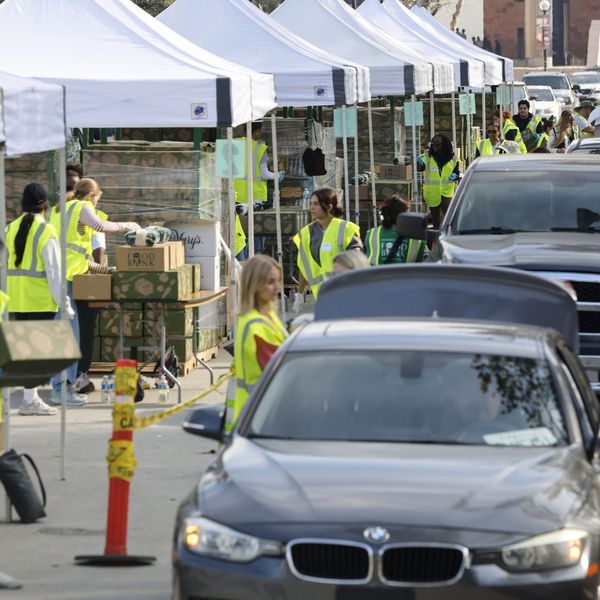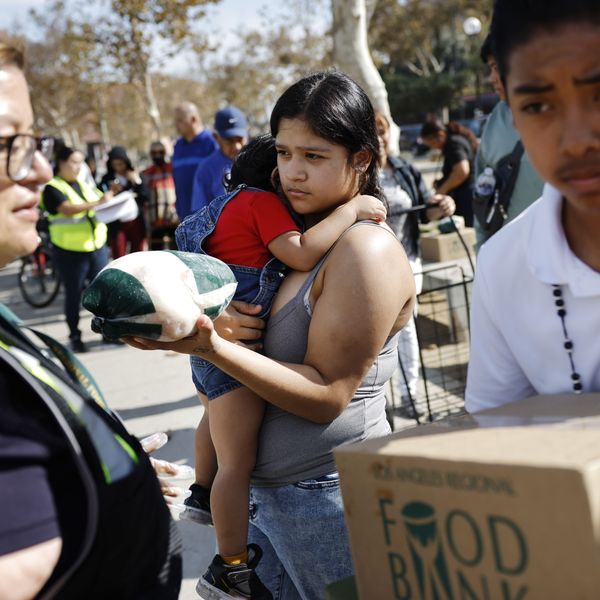One of the questions I'm constantly asked here at the food bank in Austin, Texas is: "I don't understand why there are so many people who are hungry: why is that?" They say things like, "I heard that thanks to Governor Rick Perry, the Texas economy is booming, isn't it? Texas's unemployment rate is lower than the national average; companies are relocating here in droves. Aren't these just homeless or lazy people in line for food handouts?"
My answer is simple. Many individuals and families here are just not earning enough money to put food on the table. In fact there is much more to the vaunted Texas "economic miracle" than meets the eye. It is an enticing mirage with a grim human story shimmering in the heat of this scorching Texas summer.
While it is true that the Texas unemployment rate of 8.4% is below the national average of 9.1%, it is also true that according to the bureau of labour statistics, of the 211,000 jobs created last year, 37% of these new jobs paid at or below minimum wage.
To place it in perspective, the minimum wage is $7.25 per hour, or $14,500 per year. This type of wage and job creation doesn't create a living, much less long-term prosperity. According to the Centre for Public Policy Priorities, an average family without employer sponsored health insurance living in the Austin area, must earn $53,080 at a minimum to make ends meet.
Additionally, Texas is now tied in last place with Mississippi for the highest percentage of minimum-wage workers and leads the nation for the number of people earning the federal minimum wage or less - a statistic that shouldn't make us proud. Overall, Texas wages lag behind the national average, too. In 2010, the national median hourly earnings for salary and hourly-paid workers was $12.50. In Texas, that number was $11.20.
With one in seven Americans now receiving Snap benefits (food stamps) as the effects of the great recession continue to linger, this is why this food bank, and many of our sister food banks across the country, are serving more people than ever. The vast majority of the 48,000 central Texans this food bank serves every week are employed, hard-working men and women who are just not earning a living wage - a wage that would enable them to put food on their tables, build for their families' future and participate in the American dream.
No one chooses to go hungry. Hunger is primarily the result of lack of income and the difficult economic choices more and more of our friends and neighbours have to make. That is no mirage; that is the cold, hard economic reality for all too many. We are still waiting for the Texas miracle to fulfil its promise.


